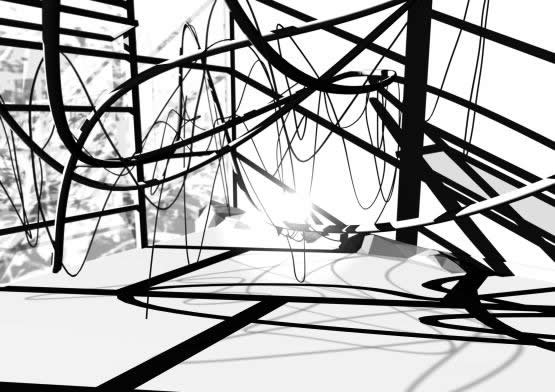I can't get enough of the Alan Parsons Project at the moment, yet I feel the band's profile these days is best summed up through this joke from Austin Powers: The Spy Who Shagged Me...
It's a terribly flat joke, not least because Scott's explanation seems to be more to a majority of the audience rather than Dr. Evil. Most people now just wouldn't know what the Alan Parsons Project is.
The Alan Parsons Project was formed in 1975 by Alan Parsons, an audio engineer who had worked on Abbey Road and Dark Side of the Moon, and vocalist Eric Woolfson. Their best albums tend to follow a similar formula: concept albums (Poe, robots, Pyramids) usually beginning with an instrumental, followed by a mixture of slick, often smooth pop-rock songs and slick, sometimes smooth symphonic-rock songs, featuring a plethora of guest vocalists. The concepts often don't work: Tales of Mystery and Imagination lacks a sonic sense of the macabre to satisfactorily match Poe, with the reading of A Dream Within A Dream by Orson Welles on the re-release failing to better German synthpop band Propaganda's take on the same poem (nicely played here over footage from Powell & Pressburger's A Matter of Life and Death- June! June!)
These days the Project is probably best known for the opening instrumental from Eye In The Sky, Sirius. Much like Michael Nyman's Chasing Sheep is Best Left to Shepherds is the quintessential Country House music, Sirius sits alongside Eye of the
Tiger in being quintessential sports build-up music, thanks largely to its use by the unstoppable Chicago Bulls team of the 1990s, but also a number of other teams, including, of late, Manchester City.
So, why is the Project less appreciated these days? That they dropped their first album in 1976, arguably after the heyday of popular Prog Rock, doesn't help: many a history of the genre would not posit them as being overly significant in its development.
The band may be better viewed through a post-ironic filter by labelling them Yacht Prog, alongside Duke-era Genesis and perhaps Nude-era Camel. Noting that they are insufficiently avant-garde and often too over-produced (unsurprising given Parsons' producer as band member role) to be praised on artistic merit alone, they did produce enjoyable vaguely proggy pop numbers. Using this Yacht Prog tag we can then accept the music, much like Italo-Disco, through its uncool/cool and crap/good dualities.

The American strain of hauntology (spearheaded by Ariel Pink) seems to draw a lot from this 'yacht-prog': removing it of its yuppie connotations and reimagining it as the music of a cassette obsessed youth. Dereification, perhaps? Taking something seemingly uber-capitalist and taking it underground.
ReplyDelete